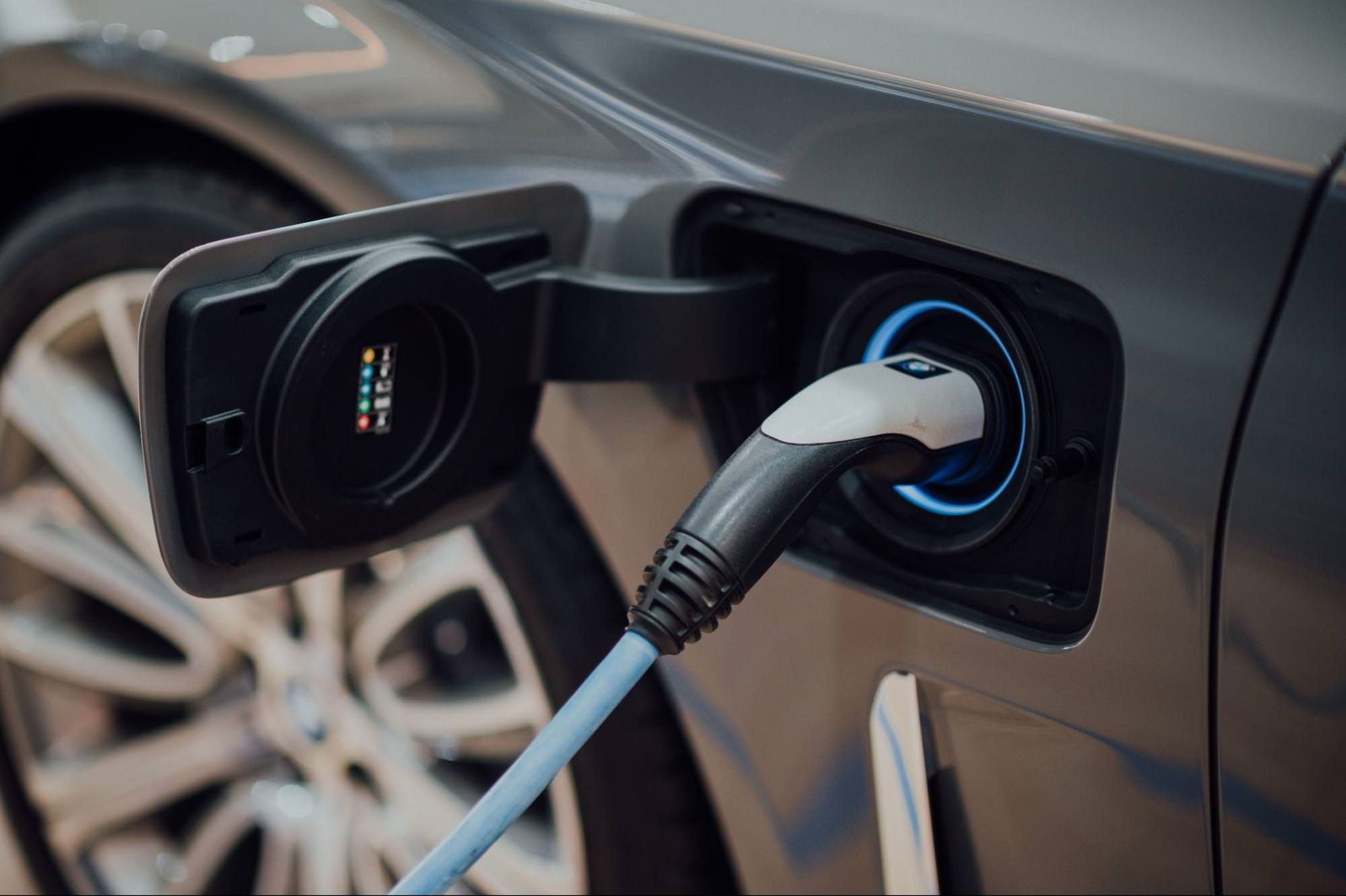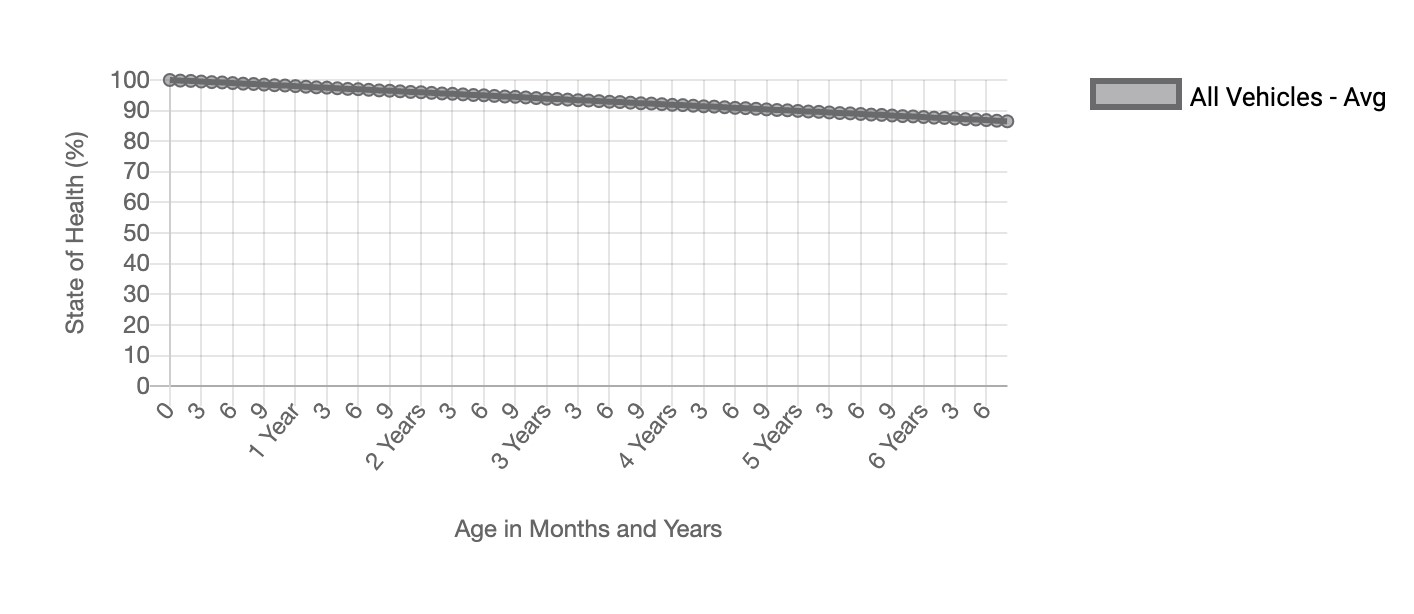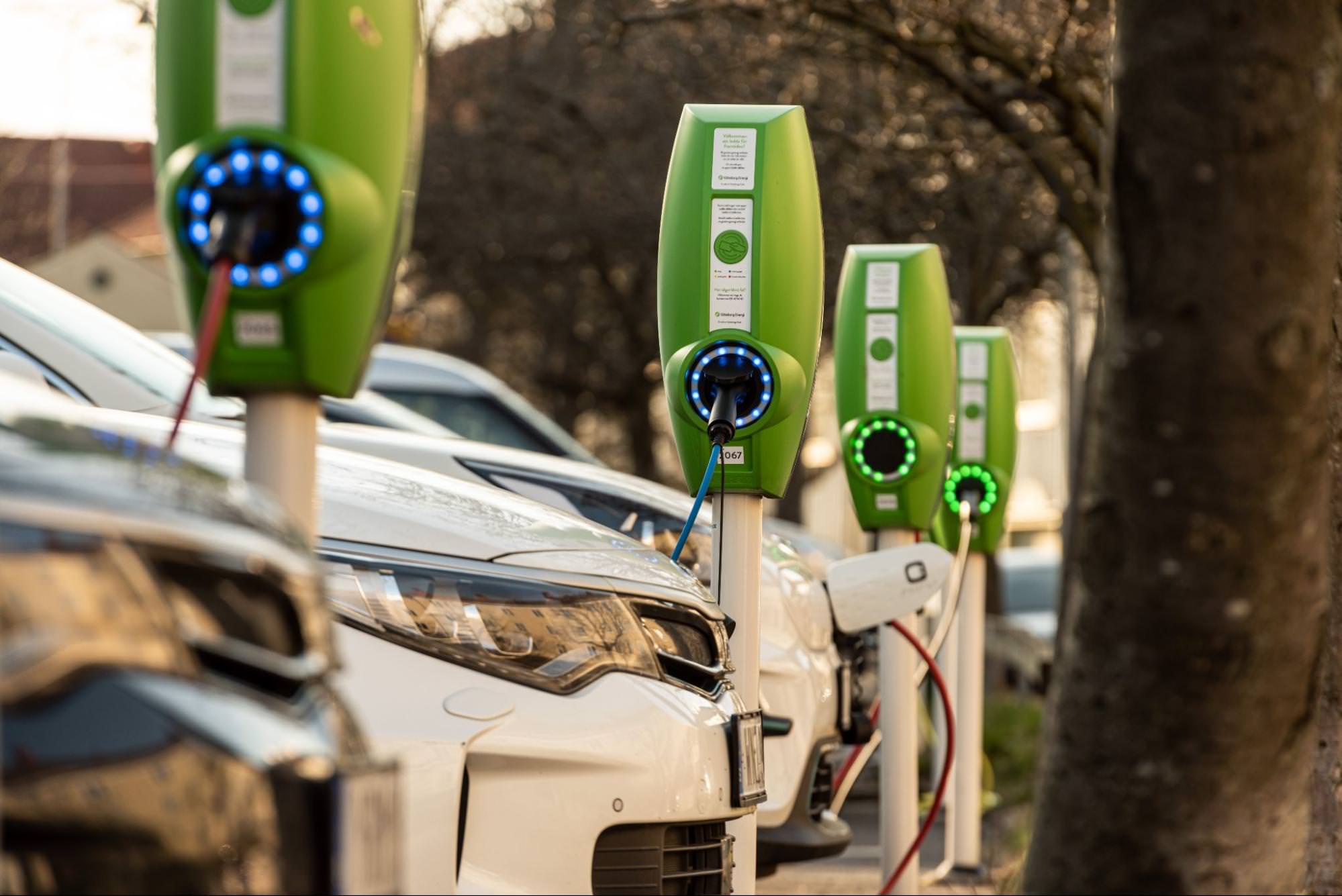- Blog
- Ar trebui să cumperi o mașină electrică la mâna a doua ca comerciant de mașini? Tot ce trebuie să știi
Ar trebui să cumperi vehicule electrice second-hand ca comerciant de mașini? Tot ce trebuie să știi
Piața vehiculelor electrice (EV) din Europa continuă să evolueze rapid. Ca comerciant de automobile, înțelegerea acestei schimbări vă poate ajuta să profitați de noile oportunități - în special în segmentul în creștere al vehiculelor electrice second-hand.

Vehiculele electrice (VE) nu mai sunt un produs de nișă. În Europa, vânzările de vehicule electrice noi continuă să crească, iar tot mai multe modele second-hand intră pe piață. Pentru comercianții de automobile, această schimbare aduce noi oportunități.
Multe guverne elimină treptat motoarele cu ardere internă și introduc zone cu emisii reduse. În același timp, prețurile combustibililor rămân ridicate, iar infrastructura de încărcare a vehiculelor electrice se extinde.
Tot mai mulți cumpărători iau în considerare opțiunile electrice, în special pe piața second-hand, unde prețurile sunt mai accesibile.
Ce înseamnă asta pentru noi, dealerii și comercianții de automobile? O selecție mai largă de vehicule electrice second-hand și un număr tot mai mare de clienți care le caută.
În acest articol, vom analiza de ce acum este un moment bun pentru a investi în vehicule electrice second-hand, cum să răspundem preocupărilor clienților și ce modele merită adăugate în stocul dumneavoastră.
Vor fi vehiculele electrice second-hand la mare căutare în Europa în 2025?
Da, cererea de vehicule electrice second-hand în Europa rămâne puternică în 2025. În timp ce piața noilor vehicule electrice continuă să se extindă, piața second-hand câștigă și ea avânt, pe măsură ce tot mai mulți utilizatori timpurii își vând vehiculele la schimb, iar tot mai mulți cumpărători caută alternative electrice rentabile.
Pentru o analiză detaliată a tendințelor actuale ale pieței, consultați raportul și previziunile noastre privind vânzările de vehicule electrice pentru 2024 .
Ce impact are asupra cererii de vehicule electrice în 2025?
Mai mulți factori explică interesul puternic pentru vehiculele electrice second-hand din acest an:
-
Mai multe vehicule disponibile pe măsură ce contractele de leasing se încheie.
-
Prețuri mai mici în comparație cu noile modele electrice.
-
Economii de combustibil și costuri reduse de întreținere.
-
Extinderea zonelor cu emisii zero în orașele europene.
-
Rețele publice de încărcare mai bune.

Cum să câștigi încrederea clienților în vehiculele electrice second-hand
Iată ce le poți spune clienților tăi data viitoare când te întreabă de ce ar trebui să cumpere o mașină electrică second-hand :
► Prietenos cu mediul
Unul dintre cele mai mari avantaje ale cumpărării unei mașini electrice second-hand este evident - este pur și simplu benefic pentru planetă.
Acesta este un excelent punct de plecare pentru o conversație atunci când le explici clienților tăi de ce ar trebui să ia în considerare achiziționarea unui vehicul electric.
► Costuri de funcționare reduse și rată de amortizare redusă
Acesta ar putea fi avantajul nostru preferat din această listă, în special pentru comercianți. Nu este nevoie de combustibil, iar electricitatea vine la un preț mult mai accesibil decât benzina sau motorina.
Comercianții pot promova faptul că prețul mai ridicat al vehiculelor electrice este în cele din urmă compensat de economiile la costurile cu combustibilul. Un alt argument important pentru comercianți este că mașinile electrice sunt, de asemenea, mai simple din punct de vedere mecanic.
Au mai puține piese mobile, ceea ce înseamnă că mai puține lucruri se pot defecta sau uza, adică mai puține șanse de defecțiuni mecanice și o nevoie mai mică de întreținere. În concluzie, vehiculele electrice tind să aibă o rată de amortizare mai mică decât mașinile obișnuite.
► Stimulente guvernamentale
Guvernele și autoritățile oferă diverse stimulente, granturi, beneficii fiscale și scutiri pentru vehiculele electrice .
Întrucât vehiculele electrice nu reprezintă încă majoritarul vehiculelor de pe șosele, în prezent există numeroase stimulente pentru a le face mai atractive pentru companii și consumatori privați.
► Performanță
Chiar dacă mașinile electrice sunt în urma mașinilor standard pe benzină și diesel în ceea ce privește viteza maximă, acestea sunt puțin mai rapide decât mașinile cu ardere internă datorită puterii și cuplului instantaneu al motorului electric. De asemenea, mașinile electrice sunt confortabile la condus și extrem de silențioase.
Preocupări frecvente din partea clienților
Mulți cumpărători sunt interesați să treacă la vehicule electrice, dar au adesea îngrijorări cu privire la achiziționarea unui vehicul electric la mâna a doua. Ca comerciant, furnizarea de informații clare și transparente poate ajuta la rezolvarea acestor îndoieli.
► Durata de viață a bateriei
Majoritatea vehiculelor electrice moderne își păstrează 80-90% din capacitatea originală a bateriei chiar și după 8 ani. Un certificat de stare de funcționare a bateriei (SoH) poate arăta starea actuală a bateriei și poate ajuta clienții să ia o decizie în cunoștință de cauză. 
► Teren de practică
Vehiculele electrice mai vechi oferă încă suficientă autonomie pentru nevoile zilnice de condus. Partajarea unor estimări realiste ale autonomiei, bazate pe utilizarea tipică, ajută la stabilirea unor așteptări corecte.
Acest lucru va varia în funcție de vechimea vehiculului. Din cauza tehnologiei mai vechi, mașinile electrice uzate mai vechi pot parcurge doar distanțe mai scurte înainte de a fi nevoie să fie încărcate din nou.
Un Renault Zoe din 2013 are o autonomie modestă, de 100 - 150 km, în timp ce Zoe din 2021 ajunge până la 390 km. Rețineți că mașinile electrice mai vechi, second-hand, vor trebui încărcate mai des decât modelele mai noi.
► Disponibilitate de încărcare
Rețelele publice de încărcare continuă să se dezvolte în Europa. Recomandarea de instrumente sau aplicații pentru găsirea încărcătoarelor — și explicarea modului în care funcționează încărcarea la domiciliu — poate liniști potențialii cumpărători.
► Leasing de baterii
Unele modele de vehicule electrice, precum Renault Zoe sau Nissan Leaf, sunt uneori vândute fără baterie și trebuie să închiriați bateria separat. Asigurați-vă că verificați cu atenție lista pentru a vedea dacă bateria este inclusă!

Sunt mașinile electrice second-hand deductibile din impozit?
În prezent, există numeroase beneficii financiare, stimulente la cumpărare și scutiri de taxe asociate cu vehiculele electrice.
ACEA, Asociația Producătorilor Europeni de Automobile, a publicat o prezentare generală cuprinzătoare a diverselor stimulente din toate statele membre ale Uniunii Europene , inclusiv stimulente pentru infrastructura de încărcare.
Ce vehicule electrice ar trebui să adaugi la inventarul tău auto
Unele vehicule electrice sunt mai fiabile, mai populare sau oferă un potențial de revânzare mai bun decât altele.
Pe măsură ce cererea de vehicule electrice second-hand crește, este important să alegeți modele care s-au dovedit a funcționa bine și a atrage cumpărători.
Dacă sunteți în căutarea unui punct de plecare, consultați articolul nostru despre cele mai bune vehicule electrice second-hand pentru dealeri . Acesta include modele ușor de vândut și care își mențin o valoare bună în timp.
Autonomia este, de asemenea, un argument cheie pentru vânzare. Cumpărătorii caută adesea mașini electrice care pot parcurge distanțe mai lungi fără încărcări frecvente. Ghidul nostru despre vehiculele electrice cu cea mai mare autonomie de cumpărat, second-hand, vă poate ajuta să identificați opțiunile potrivite pentru stocul dumneavoastră.
Iată câteva modele populare de luat în considerare:
-
Tesla Model 3 – marcă puternică, autonomie mare, valoare bună de revânzare
-
Renault Zoe – compactă, accesibilă, populară în toată Europa
-
Hyundai Kona Electric – autonomie solidă și fiabilitate bună
-
Volkswagen ID.3 – practic și susținut pe scară largă
-
BMW i3 – design unic, aspect urban
-
Nissan Leaf (a doua generație) – consacrat, rentabil, disponibil pe scară largă
Merită cumpărate mașini electrice second-hand?
Nu există nicio îndoială - vehiculele electrice sunt aici pentru a rămâne. Și se vor îmbunătăți în timp, pe măsură ce tehnologia evoluează inevitabil.
De asemenea, intră în vigoare o nouă legislație privind vehiculele electrice. De exemplu, în Belgia, toate mașinile de serviciu cu motor cu ardere internă (ICE) nu vor mai fi deductibile din impozit până în 2028. Dacă angajatorii doresc să își păstreze avantajele fiscale, vor putea oferi mașini electrice doar ca mașini de serviciu începând cu 2026.
Odată cu intrarea mașinilor electrice în flote în acest mod, inevitabil vom începe să le vedem mai mult pe piața mașinilor second-hand.
Și ce loc este mai bun pentru a cumpăra mașini electrice decât eCarsTrade? Vezi selecția noastră de vehicule electrice și hibride !
eCarsTrade oferă licitații auto online de vehicule ex-lease din Europa!
_01JE9WH8CRTMG3B3WDH56WNJHD.png)

